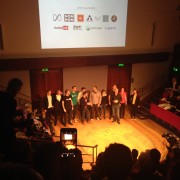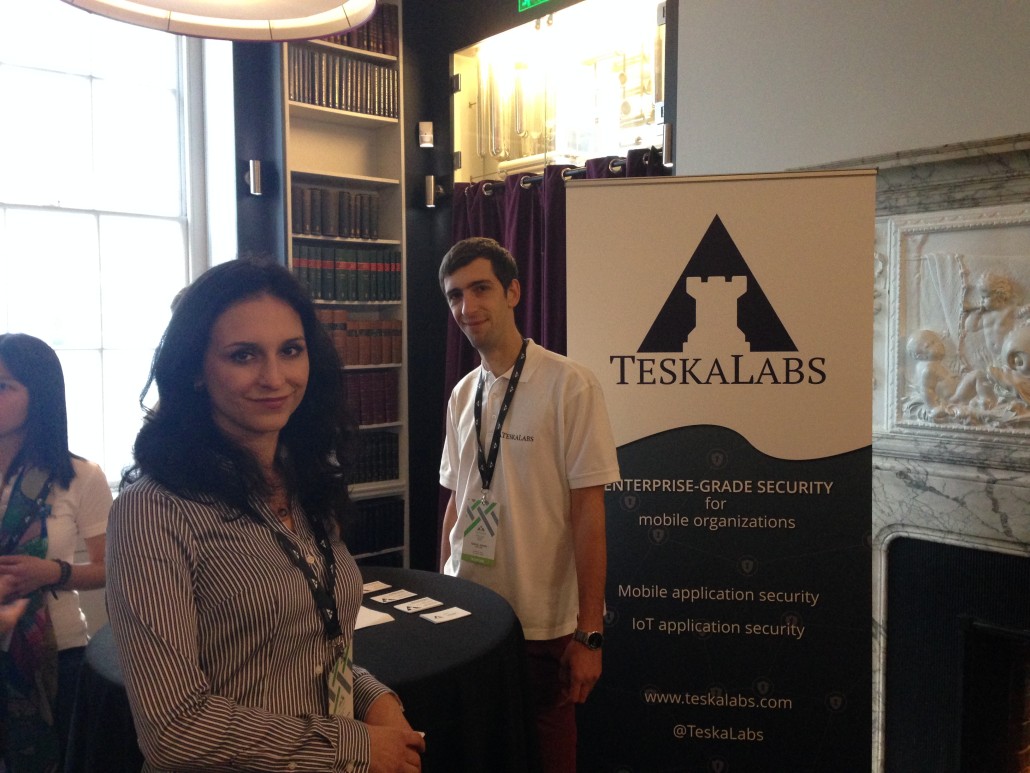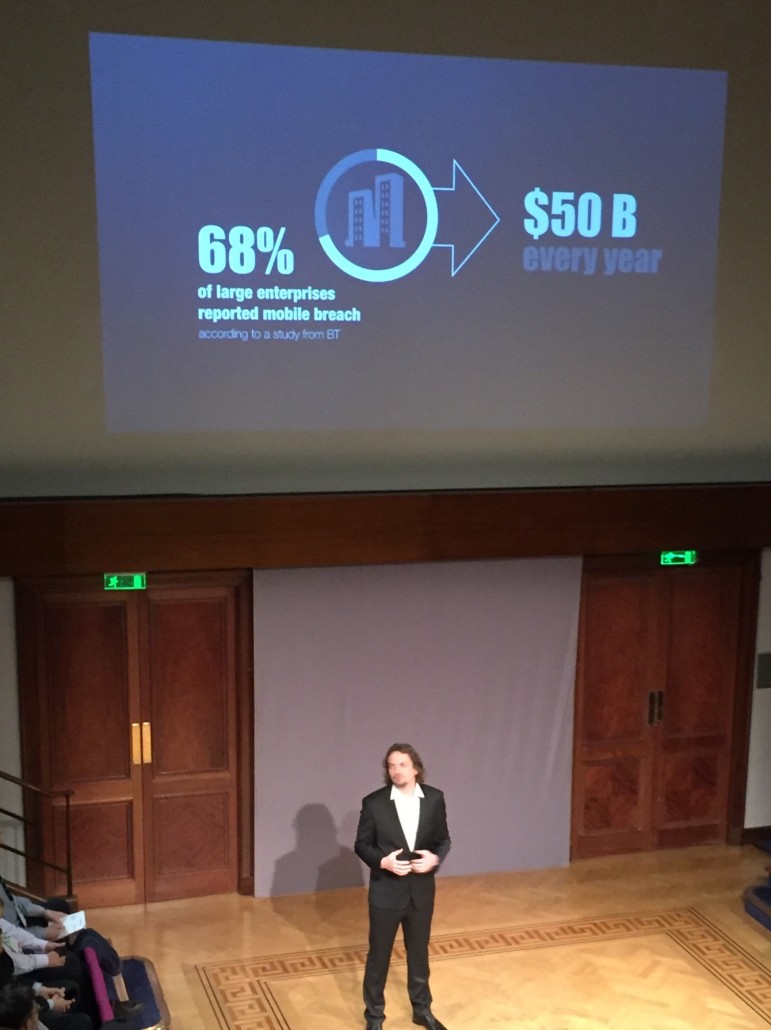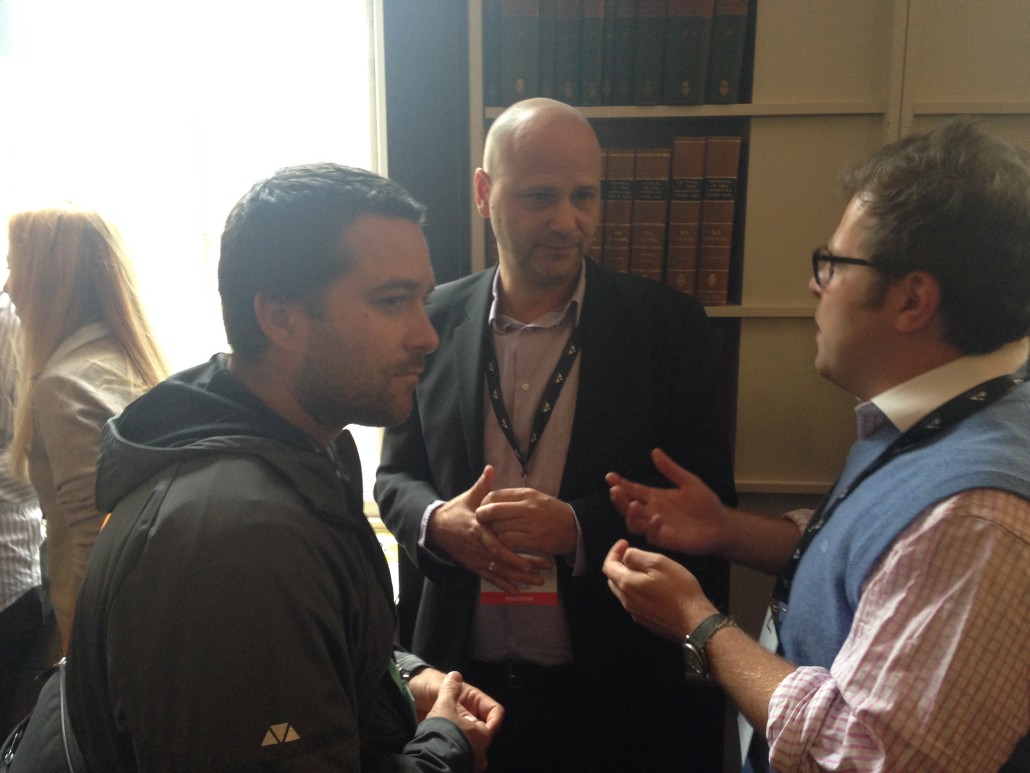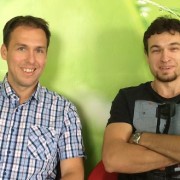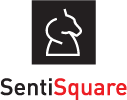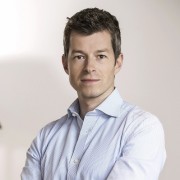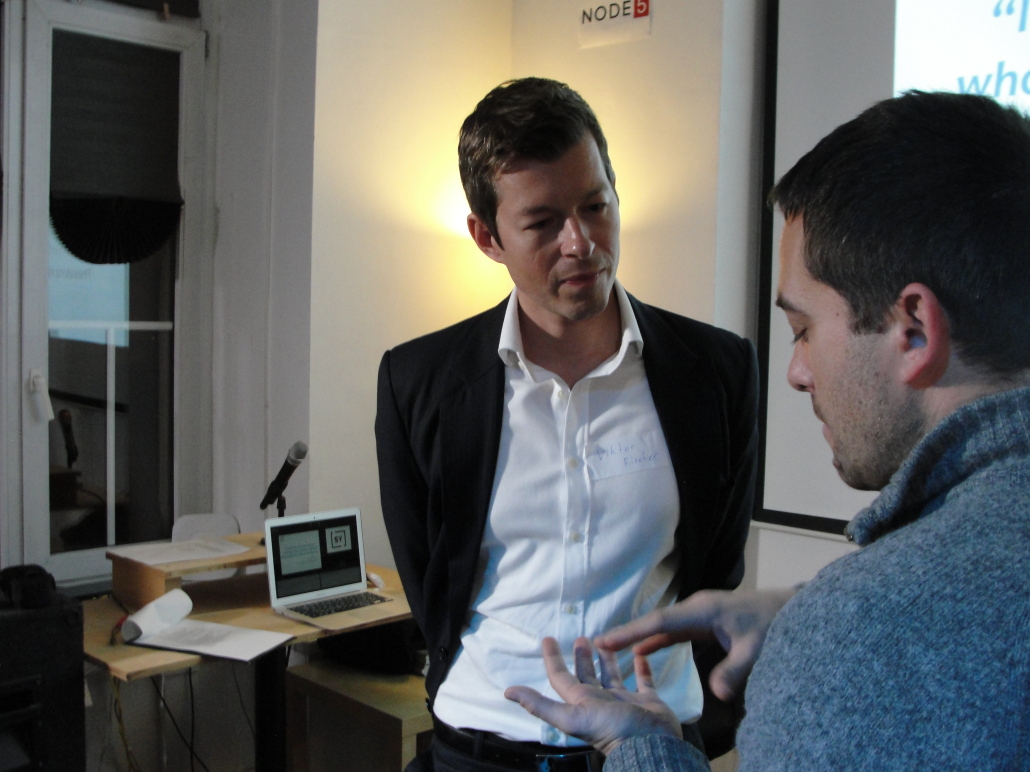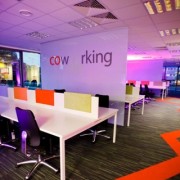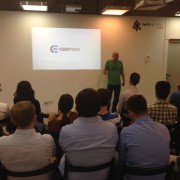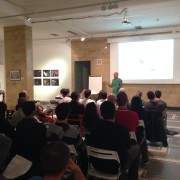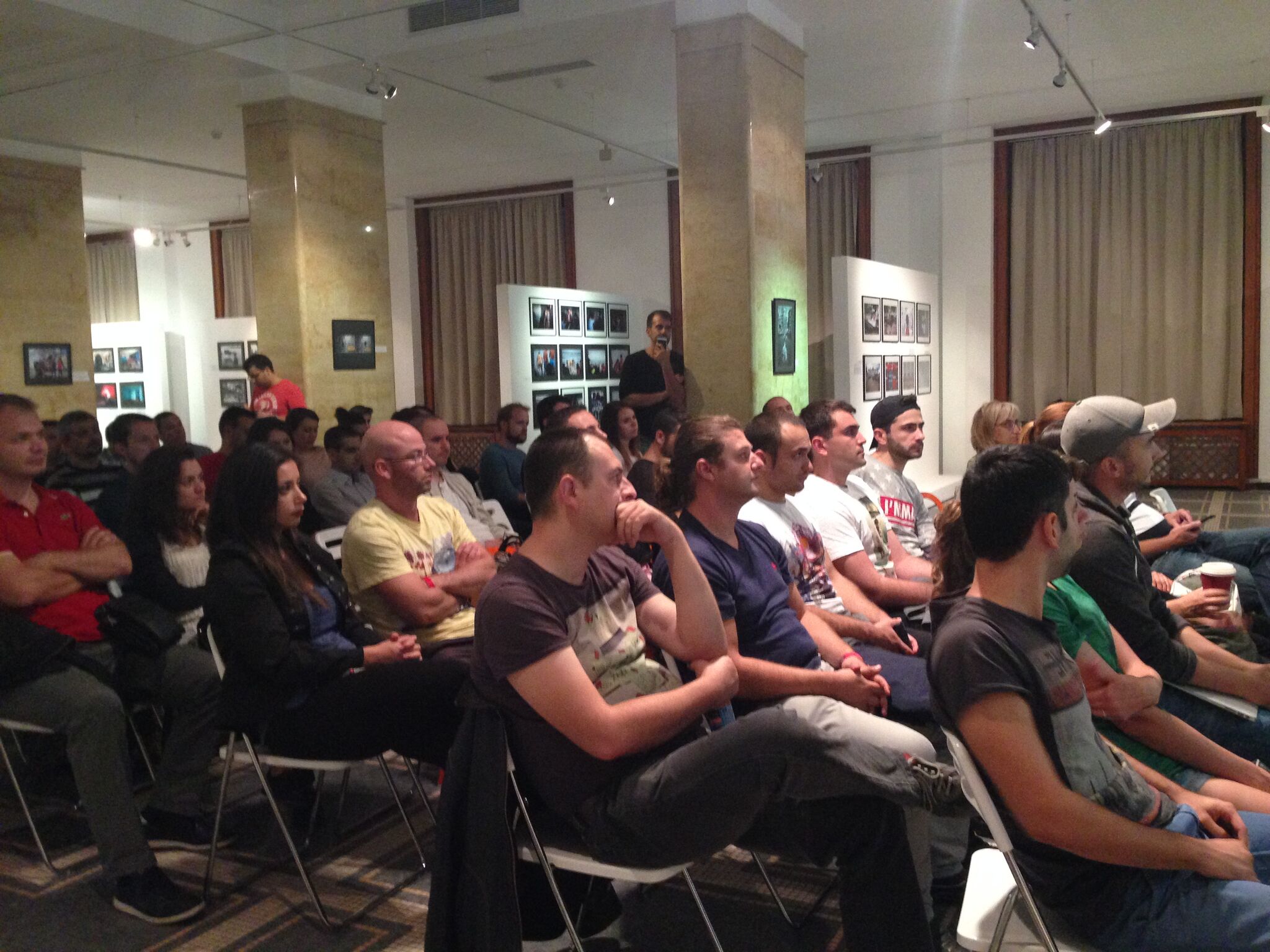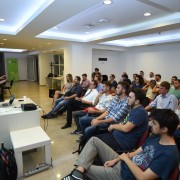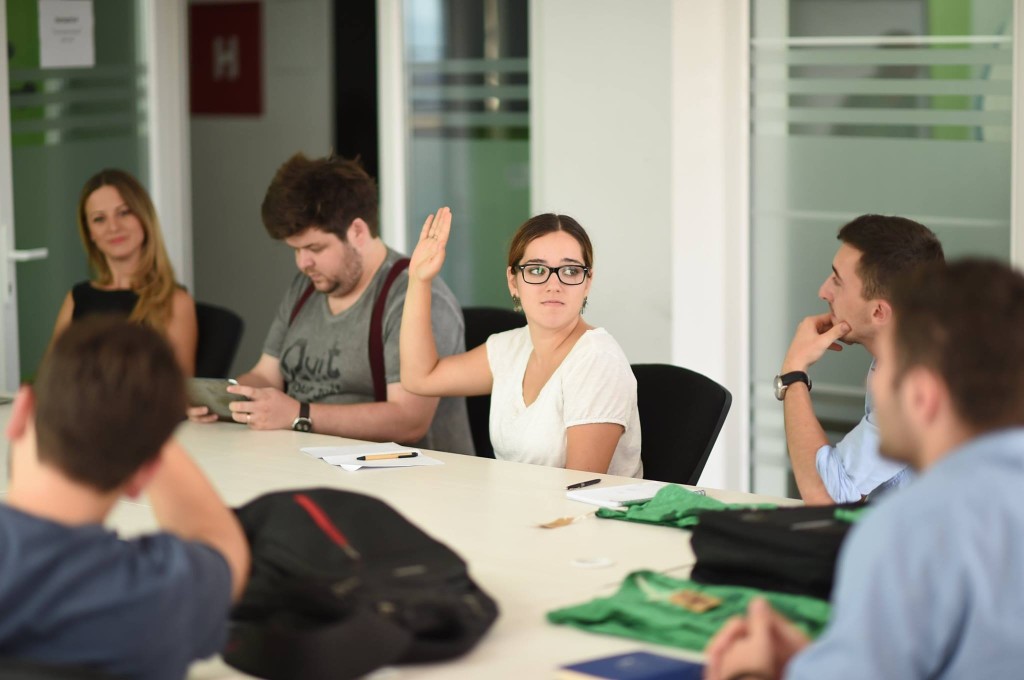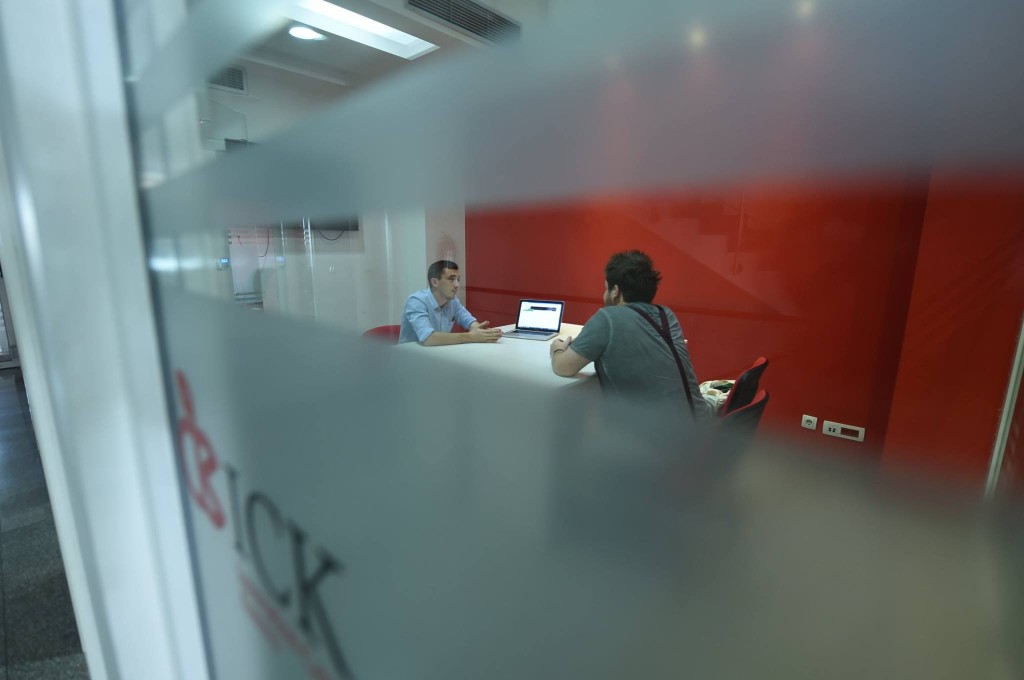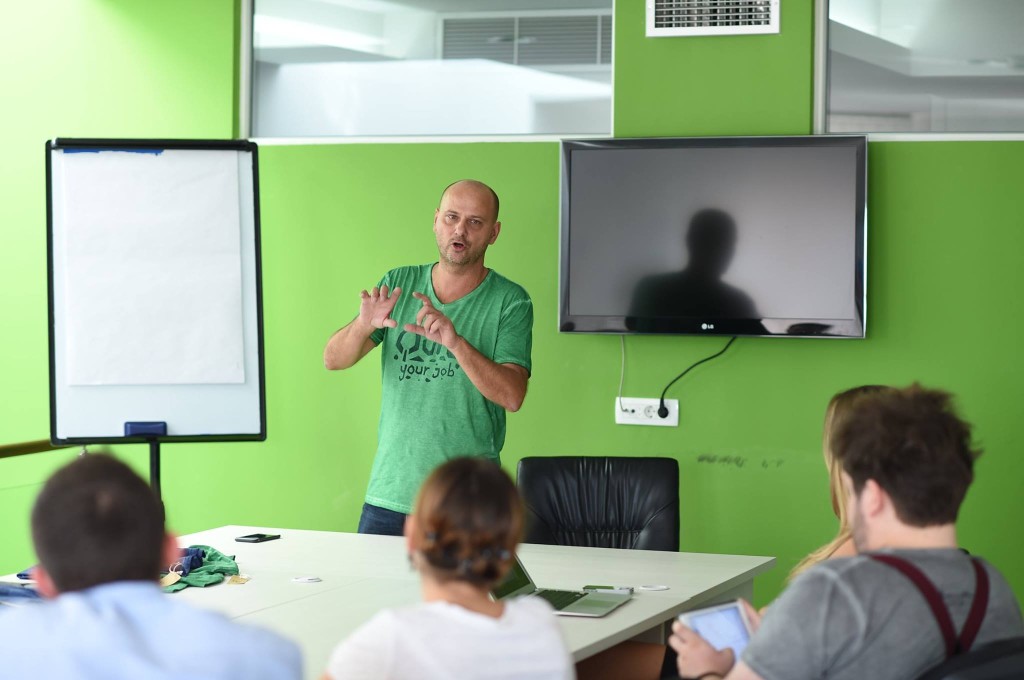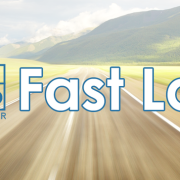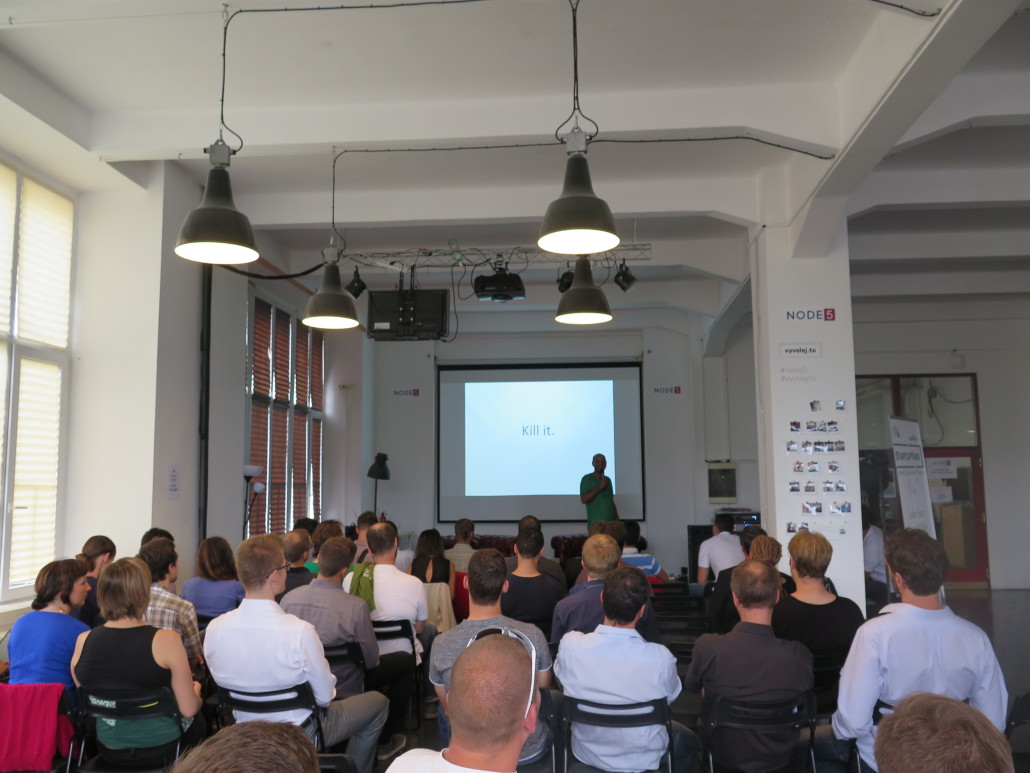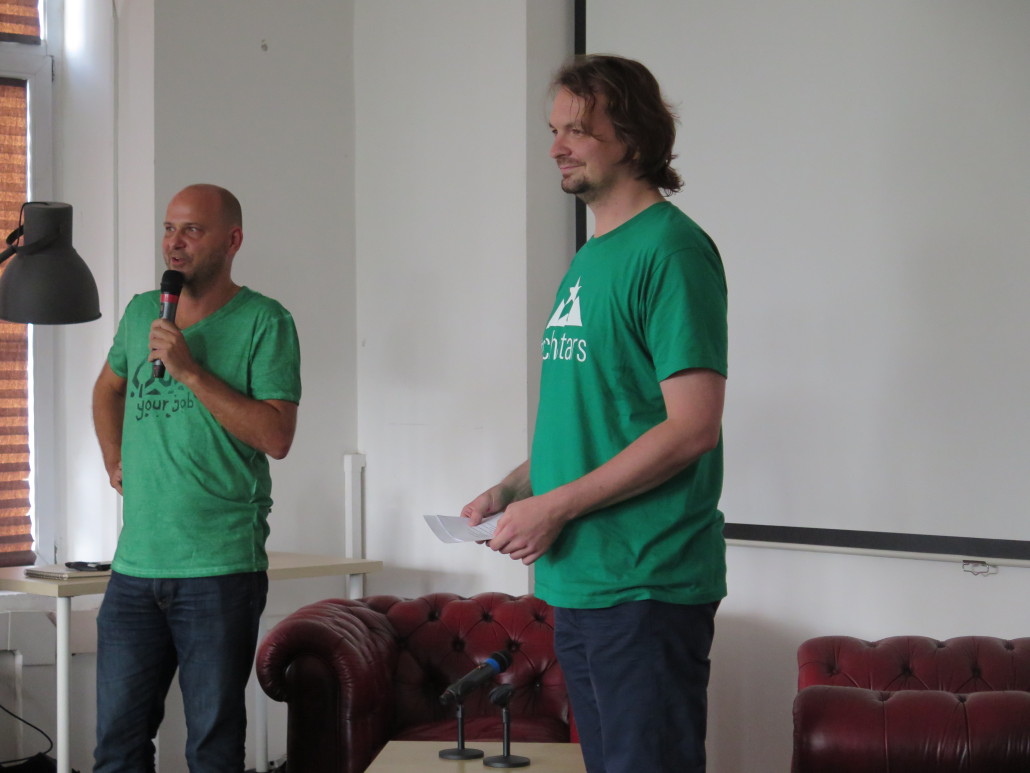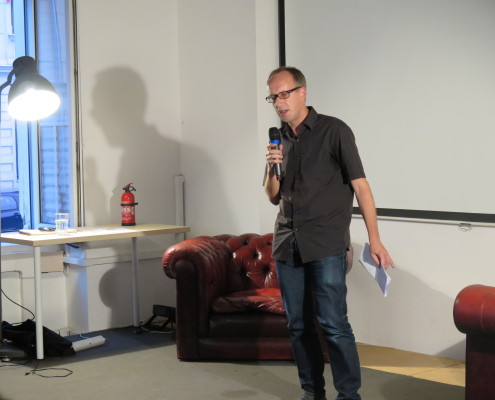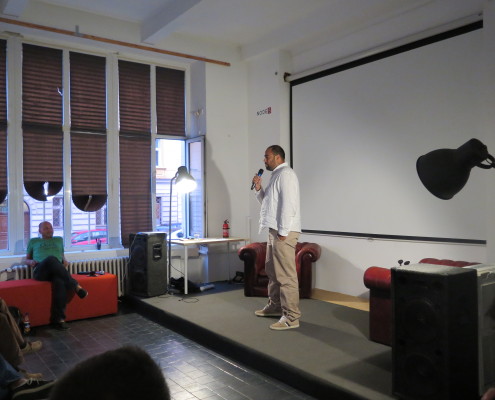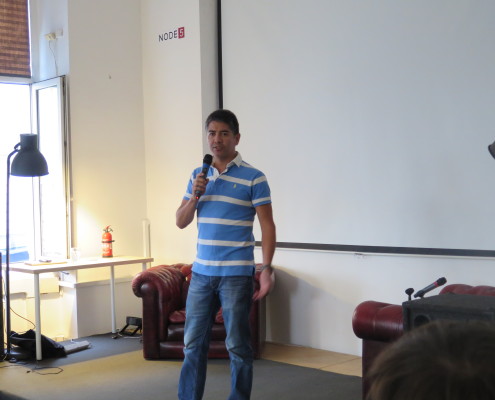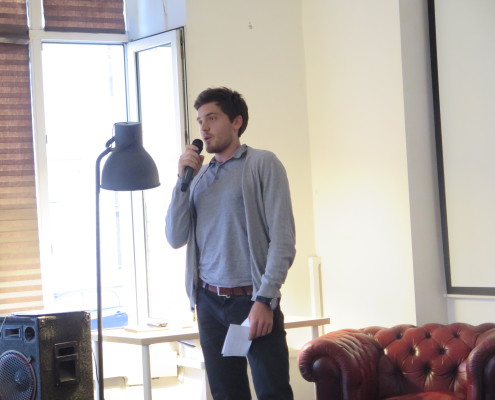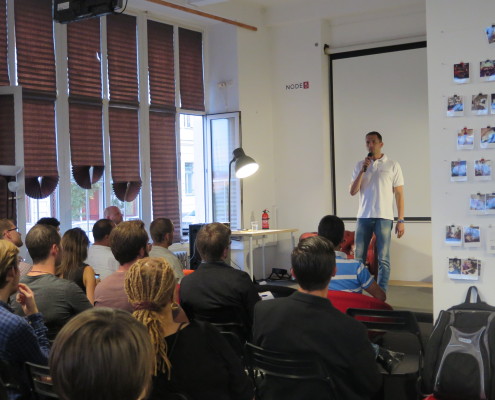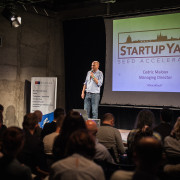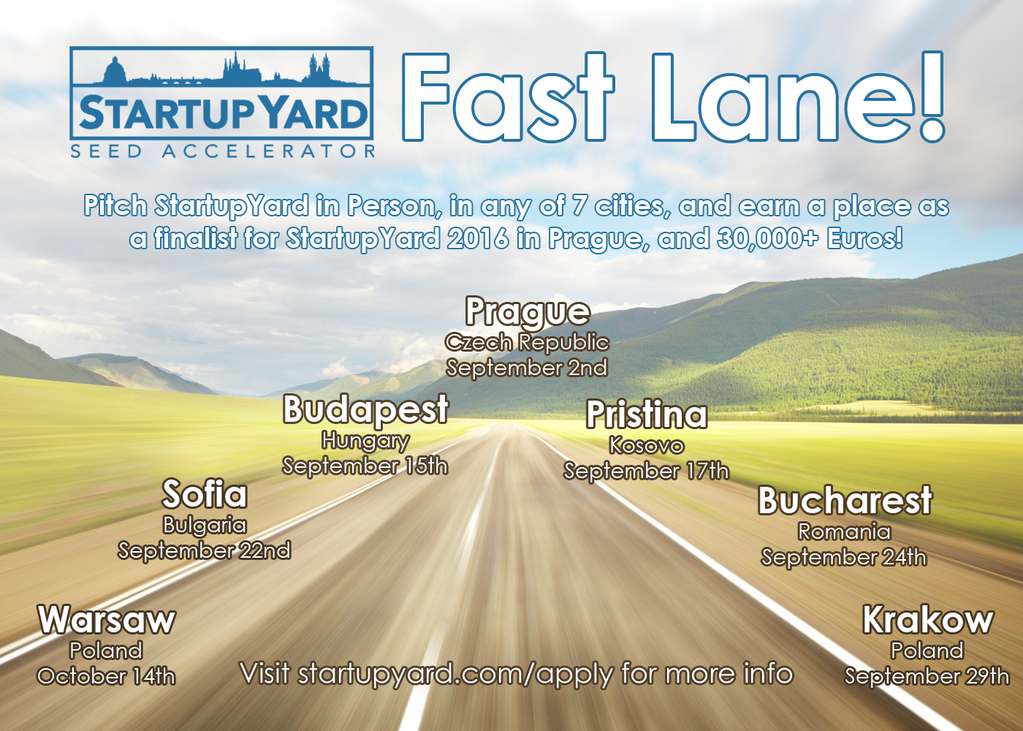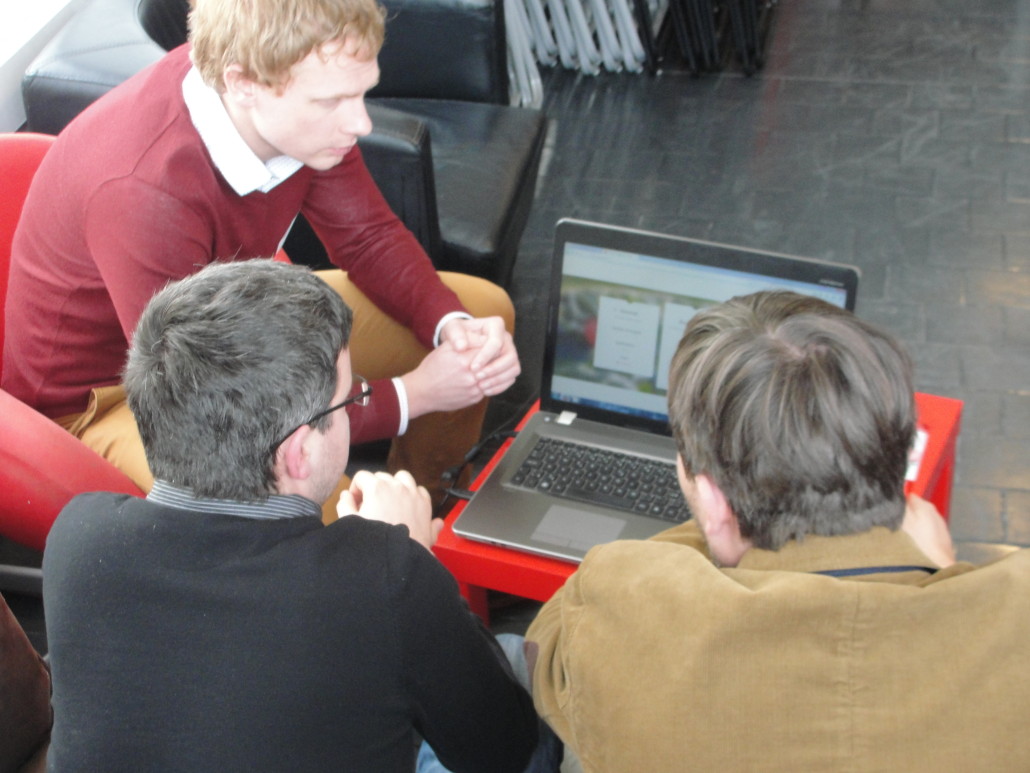What We Learned From Demo Day: TechStars London 2015
StartupYard Director Cedric Maloux and I attended TechStars London’s 2015 Demo day this week, StartupYard’s first official trip to London, thanks to our own TeskaLabs, who pitched as part of an 11 team cohort.
This was actually my first experience of a Demo Day outside of StartupYard. Though I’ve seen streams of other demo days online, I’d never attended another one in person, and the experience was enlightening in several ways. Of course, the quality of pitches was extraordinary, both visually and in terms of content and polish. That was very inspiring, and a challenge for us to live up to.
We do know that TechStars has a preferred format for pitches, and that was clearly on display. Virtually all the companies pitching covered the same data points, and there were certain stock data points that were used frequently, ie: “68% of companies have X problem.” Strangely, the number 68% seemed to have been used several times, though it must have been a coincidence.
Overall though, the pitches were masterful. It is an enormous task to turn a complicated, unproven idea, and render it as something seemingly completely obvious. But that is what most of the founders managed to do.
Of course, accelerators like TechStars pioneered the Demo Day format, but it is also constantly evolving. Here’s what we learned from TechStars London 2015:
Strong Focus on B2B, Platforms, Big Data Analytics, AI
Out of 11 companies, 9 were B2B products, and 8 of those were B2B platforms of one kind of another. In fact, our own TeskaLabs was the only B2B product that wasn’t focused on building a platform.
The reasons for that are obvious. As the pitch for NomNom, a customer feedback aggregation platform, stated quite clearly, online businesses are typically suffering less and less from an absence of data about their customers. What they are increasingly lacking, is a way of using that data which is not either grossly inefficient and expensive, or overly simplistic and prone to error.
At the same time, across consumer and business technology, it has become progressively easier to interconnect various services, leveraging data from different sources in cleaner and more intuitive ways. Platforms breed more platforms, because the more people use online services, the more data they generate, and the more potential uses for that data emerge.
It’s All About Timing
This trend of platforms breeding platforms is a perfect example of what Max Kelly, the new Managing Director of TechStars London, mentioned in his opening remarks: Startups are all about timing. You can have a good idea at the right time, and a good idea at the wrong time. Now, it seems, is the time for many ideas that you could hardly brand as “new.”
I found myself talking about this with one of the developers of SorryAsaService. They use data from CRM platforms like ZenDesk, SalesForce, and other CRMs, and allow customer service reps to send personalized apologies (in the form of gifts like cakes) to customers. This is not a new idea, and so when I first heard the pitch, I wasn’t expecting to be impressed. But I was.
So much customer data now exists, and so many logistical solutions are now available, that a one-button service like this can actually scale in a meaningful way. 5-10 years ago, when ideas like this one were first circulating, the companies had often to do most of the logistical work themselves, which proved not to be scalable or ultimately very profitable. At the same time, it was more work for their clients to use the services, because they weren’t easily integrated into an existing customer service platform.
Today, a “sorry as a service” company can integrate itself into existing CRM systems, and into logistical platforms that are already operating in many regions, and they can focus on crafting an experience for the clients, rather than on the logistical and informational challenges of delivering 10,000 or more apologies a week.
One of the trends I also noticed was an increasing focus on the application of AI to different fields. A fascinating pitch by Weave.ai, for example, promised to build a platform that intelligently accesses email, calendars, slack, and Google Drive or Microsoft Office, to provide “context” to the work interactions we have on a regular basis.
SImilarly, a music platform: Ambie, aims to provide intelligent music selection for venues, shops, cafes and other spaces. While this is far from new, the company banks on being able to integrate data from the businesses into its music choices, not only optimizing the type of music based on location, weather, day, and time, but also according to the data it takes in from the location.
While it has been the age of platforms for some time now, it may finally actually be the age of AI as well. That would certainly be what the pitches at Techstars London indicated this year. We’ll see how these projects evolve in the near future.
All About the Value Proposition
Just as we focus almost maniacally on the problem that our startups are solving, and the people they are solving it for, so too is the focus at Techstars very heavily based on the value proposition. Interestingly for me, many of the pitches also included specific ROIs and profit/loss figures for existing customers. While it’s obviously a sign of the state of progress for these companies, it’s also a pleasant surprise, considering that most pitching events stay fairly far away from the actual dollar figures in terms of the money startups can save or earn their clients.
And I was pleasantly surprised that “make the world a better place,” seemed to have been banned from the event- or at least it was certainly not something that TechStars required or encouraged its startups to say. This refrain has become hackneyed in the past few years, and at this point often comes off as false or simplistic. Everyone now seems to see technology startups as a means to a better life, and now we are more often interesting in precisely how those startups will survive as businesses, rather than as just ideas.
Cheap is not A Thing
Several of the pitches at TechStars mentioned how their products might save their clients money, but these selling points were always connected with tangible, productive changes in the way companies do business and operate. It was clearly far more important that they be able to generate new business for their clients, and fulfilling experiences for their users, rather than simply being cheap, or cheaper than other solutions.
In fact, only one startup used the word “cheap,” by my count. That startup was Ambie, and the founder was comparing his service to existing corporate music subscription programs. And significantly, he stated that Ambie would allow its users to access a much broader range of content for far less than that content would cost, as a whole, if it were bought from a range of other services. So “cheap,” in this case doesn’t exactly mean “cheaper,” but rather more value for money.
All About Numbers
Cedric and I joked after the pitches that it seemed that half the startups claimed some sort of “68%” statistic. It might be a funny coincidence, or our imagination. Most of the startups used strong statistical, demographic, and financial arguments during their pitches.
And, innevitably, each company had a slide in their pitch with a big orange circle and the words “$8 Billion Market,” or some close variation of this. As predictable as it is, it’s also very important to establish the context and ambitions of a startup in its chosen market.
It seems easy to grab a supporting statistic for your business, but doing so in a way that is both genuine and relevant is not.
Many of the investors and startupers who listen to pitches know very well how subjective those figures can be. It was obvious that the pitchers had taken some care in vetting their figures, and in working out how relevant the figures really were. There were also a *lot* of figures. More than startups at StartupYard have typically used in the past few cohorts.
Our Favorite Startups
We decided to break this down into our favorite businesses, and our favorite technologies. A lot of people think that startups are all about tech ideas. While the tech has to be unique to build a truly innovative company, it’s not true that the most complicated or novel tech ideas make the best businesses. Again, this is all about timing. An idea ahead of its time can fail just as easily as a business that is behind the technological curve.
Favorite Tech
While there were a few really interesting tech ideas, especially TeskaLabs, which for objectivity reasons, we will not name as our favorite startup of the event (though of course it is), one really stuck out for us. We should note, they did have the best MMR of any company at Techstars London 2015, but we shall say no more.
Weave.ai, which I mentioned before, gave us a view of something that I think will be central to the evolution of mobile computing in the next decade. Platforms proliferate, but our time and attention, and ability to absorb, categorize, and prioritize, never really gets any better. And the more of our lives are digital, the more like machines we are expected to behave.
What I really loved about Weave.ai, was that it acknowledge this conflict between the way technology is headed (big data, massive content, ubiquitous computing), and the way people really behave. Their solution, while it’s not guaranteed to be the final answer, is certainly a convincing argument for how business should be done in an all mobile world.
Favorite Business
Just in terms of businesses, two that we mentioned, SorryAsAService, and Ambie, stuck out to us as interesting, if not novel, business ideas. When I listen to a really polished pitch, the first thing I do is try to do is see if the pitch can convince me that a real market exists, or will exist, for the product.
If I start off with a dismissive reaction: “this is such a non-idea!” I wait to see not if the pitch can convince me it’s a new idea, but rather if it can convince me that it’s an inevitable idea. These two pitches really struck me as things that are going to happen, whether I like the ideas or not. They did this by carefully establishing their underlying value propositions, and supplying their ideas as inescapable solutions to real problems.
After viewing these pitches, my reaction was that yes, there is going to be a massive player in this market, and this company might be that player. It might not be, but I am deeply convinced that the market is real.

